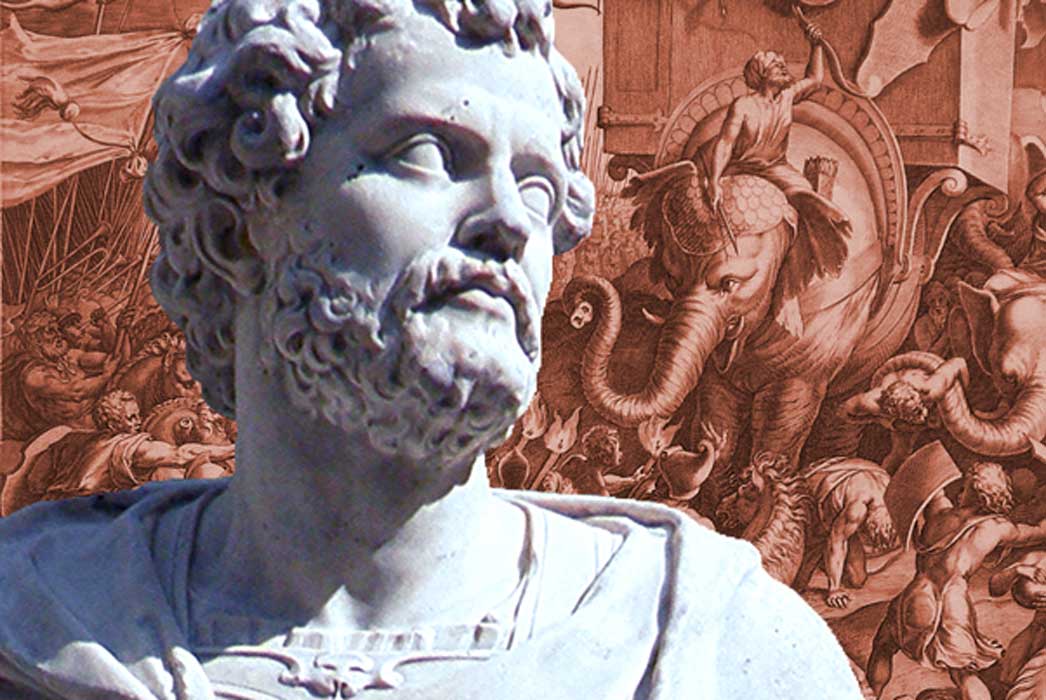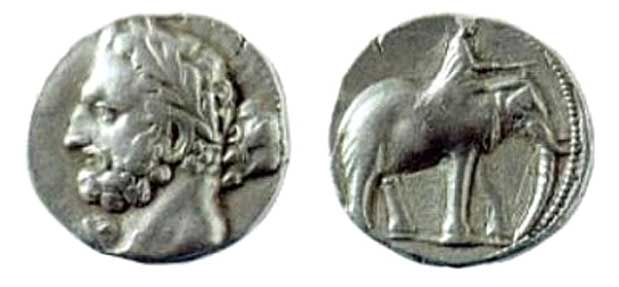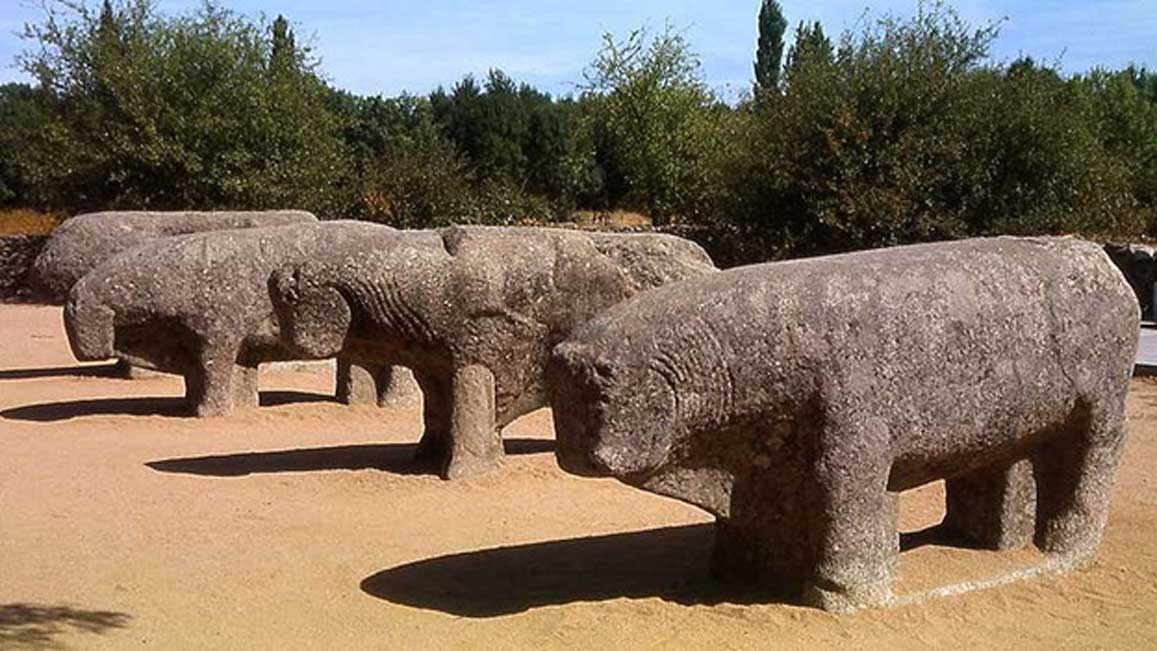
Inside the Mind of Hannibal: What Caused Him to Become Rome’s Most Hated Man?
Watching your father’s brave, heroic and selfless act in order to preserve your own life must leave a permanent mark.
They were fearsome and powerful Vetton warriors, and when they saw his father’s face he was a marked man. Young Hannibal Barca was only twelve years old. He watched his father remove his helmet, purposely drawing the feared Vetton warriors away, and their attention off the young man whose life, although he didn’t realize it, was being saved from imminent danger. His father’s body was carried away by a flooded river. Fatherless, and etched deeply within by an enormous paternal influence, both in words and deeds, all this was crystallized by the added emotion of watching his father disappear. Never again would he be able to see his physical form or even express his grief at a funeral.

A Carthaginian shekel, dated 237-227 BC, depicting the Punic god Melqart (equivalent of Hercules/Heracles), most likely with the features of Hamilcar Barca, father of Hannibal Barca; on the reverse is a man riding an elephant. (Public Domain)
Orphaned at that moment, Hannibal’s life was marked forever. His father Hamilcar, according to all writers, was a hero and the Iberian event was recorded and remembered by all (Polybius 2:1-6-9 Livy 21.1.1 Diodorus 25.10 C Nepos - Hamilcar Zonar 8.19 De Souza - Hamilcar Barcinus 9).
The Sacrifice of Hamilcar
His father’s love and marriage to a woman from Lusitania was another significant act. The women of Lisbon were, as they are now, very beautiful. Hamilcar’s preference for the Western part of Iberia, known as Lusitania, is something well-documented by the old Portuguese chronologists; These were Manuel Farias de Souza, Frei Bernardo Brito and Damian Faria e Castro. According to these, it is undisputed that Hannibal’s mother was Lusitanian and that Hannibal had been born on the island of Formentera in the Balearic Isles. She had gone into labor aboard ship on a journey to Carthage, presumably where Hamilcar wished her to give birth.
Hamilcar Barca was to be proven right about his son Hannibal. We can imagine all his guidance and all he strove for as a father for a son was justified. In willingly giving up his own life to preserve his son’s, he doubled anything he had already invested as a father. Hannibal’s short time with his father and the hard years ahead in the barren Lusitanian hills only served to increase exponentially his father’s values and to engrave them ever-deeper in his mind and soul. I may well have been his whole purpose, discipline and resolve were thus forged like steel, making a man whose life was to leave an extraordinary mark on the world and its history and at a consequential moment in time.
- A History of Hamilcar: The Legend of Cardosa and a Lost Carthaginian City – Part I
- A History of Hamilcar: Akre Leuca, Dream City of Hamilcar Barca– Part II
- How Ancient Horse-Dung Bacteria is Helping Locate Where Hannibal Crossed the Alps
Strangely, these things didn’t appear to leave him bitter. Historians see humor, love, care and thoughtfulness in the Lusitanian captain. The only resentment may have been against that tribal confederation which had killed his father—the Vettones. Ironically, it was these people who were the last enlisted into Hannibal’s army. He was finally able to see through the fog of pain that this was a brave people, and he wanted them as part of his army. They became his best cavalry and were crucial in the victories won in Italy.

The Bulls of Guisando, a set of Celtiberian sculptures located at Ávila, Spain. They are associated with the territory of a Celtiberian tribe called the Vettones. Circa 2nd century BCE. (CC BY-SA 3.0)




